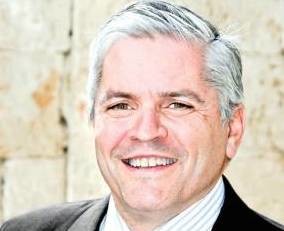Making G-d’s world better is up to each of us
Seconds, then minutes. The boat overturned in the murky waters of the Yarkon River, trapping the woman who had been energetically rowing moments before. Even the air bubbles had ceased.
A small crowd of onlookers gathered along the banks, watching and pointing, yet none seemed willing to brave the waters and attempt to rescue the woman whose life was in danger. It was not a raging river, nor were the waters particularly deep, nor wide; rather, it was well known that the waters were highly polluted and no one seemed willing to risk the potential illness that might result from entering the waters, even to save a life.
Finally, nearly four minutes after the woman had capsized, Avi Toibin, a 62-year-old passerby, realizing the stakes and, ignoring the danger, jumped in. He managed to wrest the woman’s now limp body from beneath the unforgiving waters, allowing for her evacuation to a nearby hospital where, for three days, it was unclear whether she would live or die.
Since that day in 2009, Yasmin Feingold, the 24-year-old Olympic kayaking champion, made a miraculous recovery, going on to win the national crew championship in 2010 and regain her title in the single Sculls in 2012.
She eventually met her savior, who was subsequently awarded the president’s decoration for his selfless bravery.
In parasha Ha’azinu, which we read last week, we encountered one of the most challenging questions in the human experience. “HaTzur tamim poalo’ ki kol deracahv mishpat; Kel emunah ve’ein avel, tzadik ve’yashar hu. (The Rock [G-d] is perfect; all of his ways are just; a faithful G-d who does no wrong; righteous and moral is He).”
Perfect … and yet …
Equally challenging, Moshe notes that the people will one day grow fat and complacent, they will stop appreciating how blessed they are and even forget the source of all their blessings, attributing their accomplishments to themselves, and subsequently drifting away from their faith. This will result in great suffering for the Jewish people who, distant from their true selves, will have only themselves to blame.
It would seem, then, that when trouble appears, we should search within our own actions for the cause. Seriously? Are we to blame for every travail that befalls seemingly good people? Is anyone who suffers meant to be perceived as evil?
This difficult question (if G-d is just, why do good people suffer) has challenged us since the birth of Judaism. When Abraham confronts G-d over the imminent destruction of S’dom, suggesting there may be innocents in S’dom, he says, “Will the Judge of the world not do justice?”
The Talmud (Berachot 7a) has no less than Moshe himself posing this question when asking G-d to see His glory, and notes that G-d’s response is that no man can see Him and live, suggesting that as mere mortals we cannot understand Hashem’s ways and that this difficult question will forever elude us.
On the one hand, it makes sense that human beings cannot presume to understand the ways of G-d who is the source of all reality. Were G-d not the source of all that happens in this world, we would be left with a world that is random and with no meaning and we would be engaged in a Darwinian struggle to survive, Shakespeare’s world of “no rhyme nor reason, full of sound and fury, signifying nothing.”
Conversely, there are those who suggest that if everything comes from G-d, then everything is good — we just have difficulty seeing some things as good, with G-d hiding our ability to see them as such (and therefore we have to step aside and let G-d run the world). But this leaves us with the question of what value there is in simply trusting that a child dying a painful death is somehow a good we cannot see as good; what, really, is the value of that way of thinking?
There is another way to approach this question, however, and that is not to step away, but rather to step forward. Each of us has the opportunity to contribute to making a better world, and everything that we encounter affords us an opportunity to do just that.
It is not our job to understand why an innocent kayaker suddenly has her life turned upside down — but it is our challenge, if we happen to find ourselves standing on the riverbank, to decide whether we will jump in and change the world, or remain a bystander as the world passes by.
We can be inspired by the Yasmin Feingolds of the world, whose indomitable spirit refuses to step aside in the face of the challenges life presents, stepping forward instead to the world of a life worth living.
As we prepare to enter the Sukkah, and re-enter the world G-d created, let’s not allow ourselves to stagnate and take for granted the life we are living. Instead, let us consider how the world will be a better place for our being here — each one of us, every day.
Rabbi Binny Freedman is Rosh Yeshiva of Orayta in Jerusalem. A version of this column was previously published.






